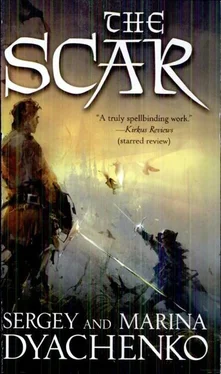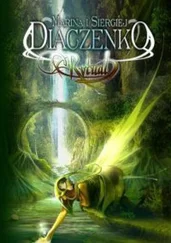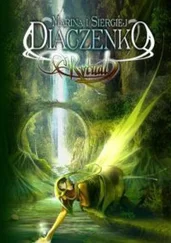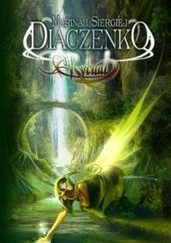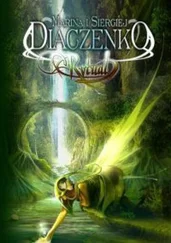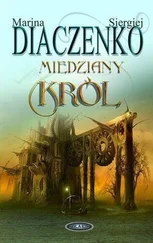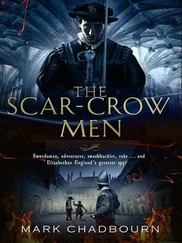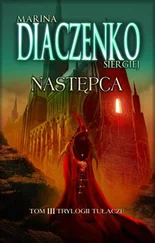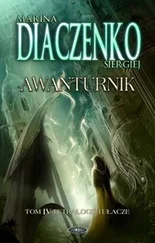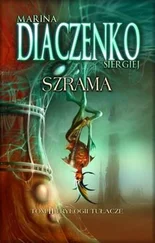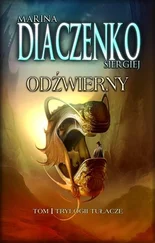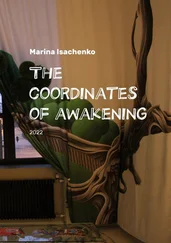Searchingly gazing at Egert, Karver tried to raise himself up onto his elbow. “Are you sure?”
The smooth surface of the Kava river gleamed in Egert’s mind’s eye; sunlight flared up and died out on the water, where the quivering copper green of Kavarren’s roofs, turrets, and weathervanes was reflected.
Knowing that he lied, he smiled widely and tranquilly. “Of course I’m sure. Kavarren is safe.”
Karver sighed deeply and lowered himself back onto the pavement. His eyes closed halfway. “Thank … Heaven…”
No one would ever hear him say another word.
The fog dispersed, and the square appeared before Egert’s gaze. It looked like a field of battle. Here would be enough food for a thousand ravens, but there was not a single bird in the city; nothing disturbed the dead, as though the scavengers of the world were obeying a taboo.
However, that was not entirely true. Egert looked around; a boy ran from corpse to corpse with his back bent low. He was about eighteen years old, medium height, scrawny, with a canvas sack over his shoulder. Beggars gathered their alms in such sacks, and Egert guessed what the youngster was gathering in his. Stooping over a corpse, he dexterously fished out a purse or a snuffbox or whatever finery caught his eye from the dead person; rings were a bother: they did not wish to slip off the swollen fingers. The lad sniffed the air, keeping a wary eye on Egert, but he continued his business, scrubbing at dead hands with a piece of soap he had saved specially for this occasion.
Egert wanted to scream, but his fear proved stronger than his fury and disgust. Spitting on his soap, the looter skirted around Egert in a wide arc and then took to his heels at the sound of a shrill whistle.
Egert, struck dumb, watched as the lad fled. On the very edge of the square he was overtaken by two broad-shouldered figures, one in the white-and-red uniform of the guards, the other in a slovenly black smock. The lad screamed like a rabbit, tried to dart away, cowered in their arms, then thrust the sack away from himself as if trying to pay them off. Egert did not want to watch, but watch he did as the man in guard’s uniform beat the lad over the head with his sack. He heard the next words, painfully strained, carry throughout the entire square.
“No! I’m not! They don’t need it! They don’t need it! The dead don’t need—ah!”
Passing into an inarticulate shriek, the screaming died out. The scrawny body crumpled to the ground in the glow of the streetlamps with the canvas sack on its chest.
* * *
Fox returned late that evening. Egert, whose intuition that day had become as sharp as a spear, found him before anyone else.
Gaetan stood by the entrance, on the stone porch of the university; he stood embracing the wooden monkey by the shoulders. His tricornered hat, crumpled out of shape, slid down his forehead. He was, of course, blindly, staggeringly drunk. Egert, who experienced colossal relief at the sight of his friend, wanted to lead him in out of the cold and put him to bed. Hearing Egert’s footsteps behind him, Fox shivered and turned around. The light of the lantern in the doorway fell on his face. Gaetan was sober, as sober as the day of the exam, but his honey-colored eyes now seemed dark, almost black.
“Egert?”
Egert did not understand what had frightened his friend so. He took another step forward, extending his hand. “Let’s go.”
Gaetan recoiled. His gaze compelled Egert to come to a dead halt; not once in their long acquaintance had he seen in the eyes of his friend such a strange expression. What was it? Loathing? Scorn?
“Fox?” he muttered uneasily.
“Don’t come near me,” Fox replied desolately. “Don’t come near me, Egert. Don’t you come near me, I beg you. Go away. Go back.” He staggered, and Egert suddenly realized that the sober Gaetan could barely stand on his own two legs: he was being dragged to the ground. He was being dragged into the ground.
He understood now what that expression was that had frozen in Fox’s eyes. It was fear of approaching death and fear of carrying away with him another person, his friend, Egert.
“Gaetan!” groaned Egert through his teeth.
Fox hugged the monkey tighter. “Don’t … You know, Farri died yesterday. Do you remember Farri?”
“Gaetan…”
“Go back. I’ll just take a little … stroll. Maybe I’ll make my way to the One-Eyed Fly. If the innkeep is still alive, he’ll give me a drink. On credit.” Fox laughed, arduously stretched out his hand and, barely reaching it, patted the monkey on his shiny wooden bottom.
Egert stood on the steps and watched him walk away. Fox staggered as he walked, sometimes falling, just as he had so many times when returning from a night out; his cap with the silver fringe lay like a parting gift at the feet of the wooden monkey. The sightless sky, full of dark clouds, brooded over the city, and the Tower of Lash, mute, sealed shut, mantled in smoke, brooded over the square.
* * *
For a whole long day and night they thrashed about like two fish at the bottom of Toria’s reddish black incandescent ocean.
Coming to her senses, Toria felt echoes of shame: never in her life would she have imagined that within herself she carried this covetous, insatiable, inexhaustible beast, ready to tear off not just clothing, but skin. Panicking, she tried not to look at Egert, who was lying next to her; she did not dare touch his skin, not even with her breath, but the ardent beast quickened and upended all her notions of dignity and decency, and afflicted by passion, she responded to the similarly grasping, indefatigable passion of Egert.
Heaven, it can’t really be like this for everyone, can it? Toria thought, because then life was completely foreign, completely different than she had ever thought it was, because there seemed to be powers that controlled her, forces that overrode all her preconceptions, and she could finally understand dark, shadowy forces that had beguiled her mother. Mother? But why dark and shadowy? Why beguiling? This is happiness; this is joy. Egert! Egert, I could have died a remote old crone, never knowing the world of truth! But could I be wrong? What if this is not truth, but obsession, delirium, deceit!
Swallowing, her throat husky from groans, her cheeks stained with tears that she did not bother to wipe away, she relaxed, abated, melted into Egert’s embracing arms as if burrowing into a warm, secure den. Closing her eyes, she lazily sorted through the fragmentary images that rushed through her brain, and from time to time plucked from the stream one that seemed to contain unmistakable truths.
It was a truth that if had she become the wife of Dinar, she would never have known of any other love besides friendly, brotherly love. It was a truth that the loss of Dinar had blessed her. Heaven, this is monstrous, this is impossible. Dinar, forgive me! Toria began to weep silently, without tears, and in his sleep Egert embraced her more tightly. She dozed off, and she saw Dinar nearby, sitting on the couch opposite the bed as he usually had when he came to her room. Serene and earnest, he looked at Toria without reproach, but also without indulgence, as though desiring to say that he was done, that he would never come back, but don’t cry, he loves you so …
Then the vision of Dinar faded away, disappeared in succession of others. Toria dreamed of her mother, frozen in a cold bank of snow, and of her father, forever weighed down by a sense of guilt. But where is the guilt of a woman, whose passions overwhelm her own identity, like a wave washing over the deck of a fragile ship? And if it was true that in her face she duplicated her mother, then did she not also inherit her passions?
Читать дальше
